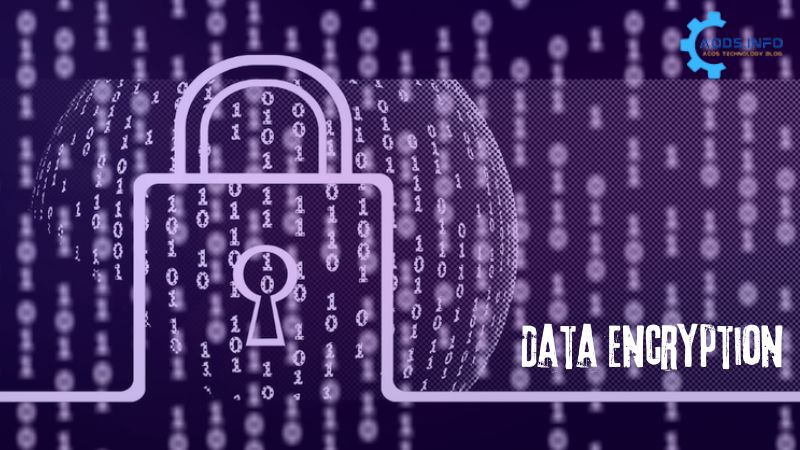In an age where data breaches and privacy concerns loom large, the quest for secure and transparent data management solutions has never been more critical. Amidst this backdrop, blockchain technology has emerged as a promising contender in the realm of data privacy protection. But how does blockchain support data privacy, and what mechanisms does it employ to ensure the confidentiality and integrity of sensitive information? Let’s delve into Aods.info this question and explore the multifaceted ways in which blockchain technology bolsters data privacy.
Contents
- 1 How Does Blockchain Support Data Privacy
- 1.1 Immutable Record: Preserving Integrity
- 1.2 Decentralization: Distributing Control
- 1.3 Cryptographic Security: Safeguarding Transactions
- 1.4 Permissioned Access: Restricting Entry
- 1.5 Smart Contracts: Automating Compliance
- 1.6 Data Consistency: Ensuring Accuracy
- 1.7 Data Encryption: Protecting Confidentiality
- 1.8 Private and Consortium Blockchains: Tailoring Access
- 2 Summary
How Does Blockchain Support Data Privacy
Immutable Record: Preserving Integrity
At the heart of blockchain technology lies its immutable nature. Once data is recorded on a blockchain, it becomes virtually immutable, meaning that it is extremely difficult to alter or tamper with. This inherent feature serves as a bulwark against unauthorized modifications, ensuring the integrity of the data. How does blockchain support data privacy in this regard? By maintaining an unalterable record of transactions and interactions, blockchain instills trust and confidence in the data, reducing the risk of fraudulent activities or data manipulation.
Decentralization: Distributing Control
Centralized data repositories present a single point of failure, susceptible to breaches and unauthorized access. In contrast, blockchain networks operate in a decentralized manner, distributing data across multiple nodes rather than relying on a central authority. This decentralization not only enhances the resilience of the network but also fosters data privacy by minimizing the risk of unauthorized access or control. How does blockchain support data privacy through decentralization? By dispersing data across a network of nodes, blockchain mitigates the risk of data breaches and ensures that no single entity has undue control over sensitive information.
Cryptographic Security: Safeguarding Transactions
Blockchain transactions are secured through cryptographic techniques, making them resistant to unauthorized access and tampering. Each block in the blockchain is cryptographically linked to the previous one, forming an immutable chain of data. Additionally, transactions are typically encrypted, further fortifying the security and privacy of the data. How does blockchain support data privacy through cryptographic security? By leveraging encryption and cryptographic hashing algorithms, blockchain technology provides a robust framework for protecting sensitive information and ensuring the confidentiality of transactions.
Permissioned Access: Restricting Entry
Not all blockchain networks are open to the public. Some are configured to allow only authorized parties to access certain data or participate in transactions. This permissioned access model enhances data privacy by restricting entry to trusted entities while maintaining the transparency and integrity of the blockchain. How does blockchain support data privacy through permissioned access? By implementing access controls and permission schemes, blockchain networks can safeguard sensitive information and prevent unauthorized parties from viewing or manipulating data.
Smart Contracts: Automating Compliance
Smart contracts are self-executing contracts with the terms of the agreement directly written into code. These programmable contracts automatically enforce and execute the terms of an agreement, reducing the need for intermediaries and potential points of data exposure. How does blockchain support data privacy through smart contracts? By automating compliance and eliminating the need for manual intervention, smart contracts minimize the risk of human error and ensure the privacy and integrity of transactions.
Data Consistency: Ensuring Accuracy
Blockchain networks maintain a consistent view of data across all nodes in the network, ensuring that all participants have access to the same, up-to-date information. This consistency reduces the risk of discrepancies or data manipulation, enhancing trust and confidence in the integrity of the data. How does blockchain support data privacy through data consistency? By providing a tamper-evident record of transactions and interactions, blockchain technology instills trust in the accuracy and reliability of the data, bolstering data privacy and security.
Data Encryption: Protecting Confidentiality
While data on the blockchain is visible to all participants, sensitive information can be encrypted to protect privacy. Encryption techniques such as public-key cryptography can be used to secure data, ensuring that only parties with the appropriate decryption keys can access and view the encrypted information. How does blockchain support data privacy through data encryption? By employing robust encryption techniques, blockchain technology safeguards sensitive information and protects the confidentiality of data, reducing the risk of unauthorized access or exposure.
Private and Consortium Blockchains: Tailoring Access
In addition to public blockchains like Bitcoin and Ethereum, there are private and consortium blockchains where access to the network is restricted to authorized participants. These closed networks are often used in enterprise settings where data privacy and control are paramount. How does blockchain support data privacy through private and consortium blockchains? By tailoring access and participation to trusted entities, private and consortium blockchains enable organizations to maintain control over their data while ensuring the privacy and security of sensitive information.
Summary
In conclusion, blockchain technology offers a robust framework for enhancing data privacy through its immutable record, decentralization, cryptographic security, permissioned access, smart contracts, data consistency, encryption, and private and consortium blockchains. By leveraging these mechanisms, blockchain technology empowers organizations to protect sensitive information, preserve data integrity, and uphold user privacy in an increasingly interconnected and data-driven world. As the demand for secure and transparent data management solutions continues to grow, blockchain technology stands poised to play a pivotal role in safeguarding privacy and fostering trust in the digital age.




